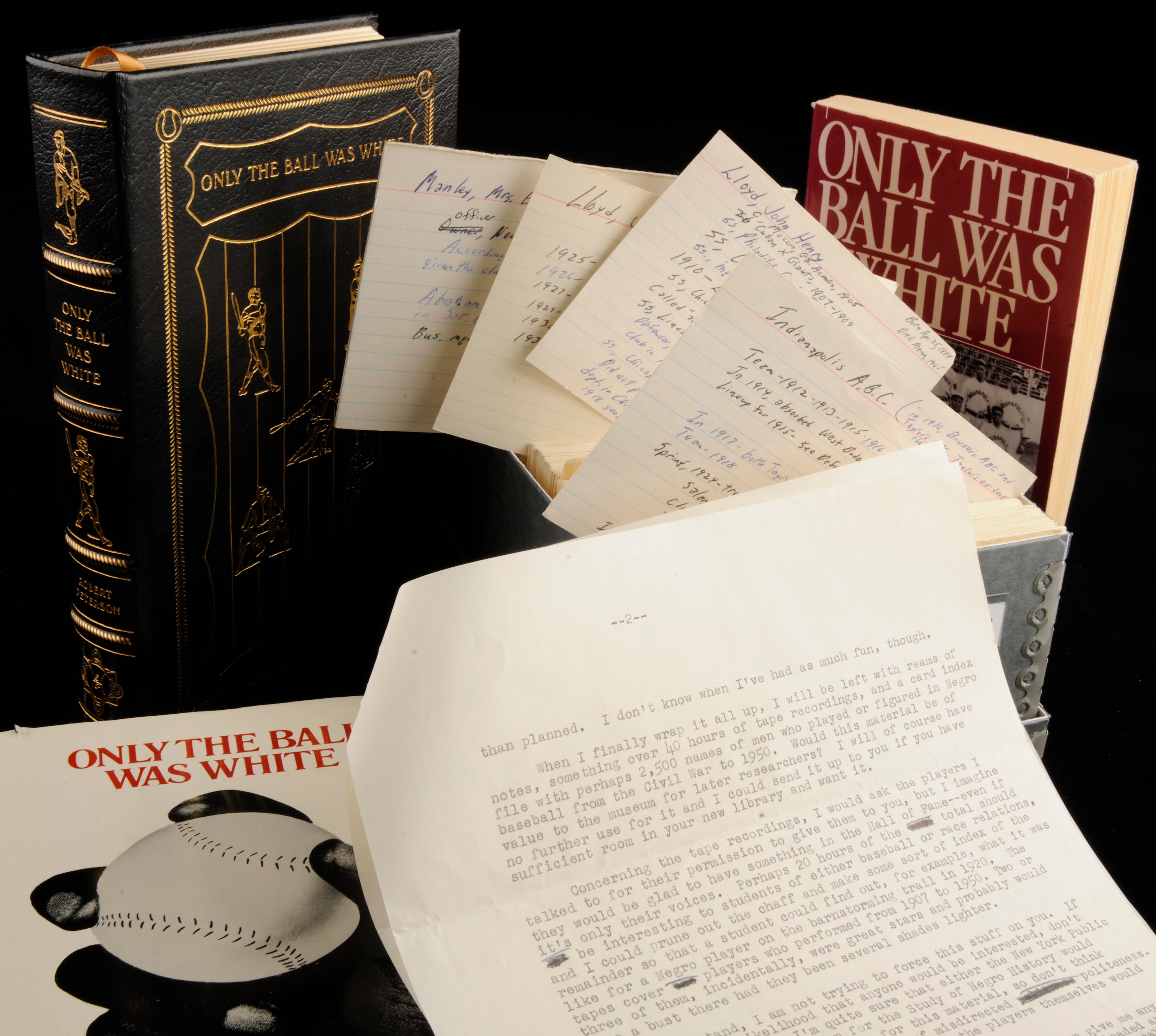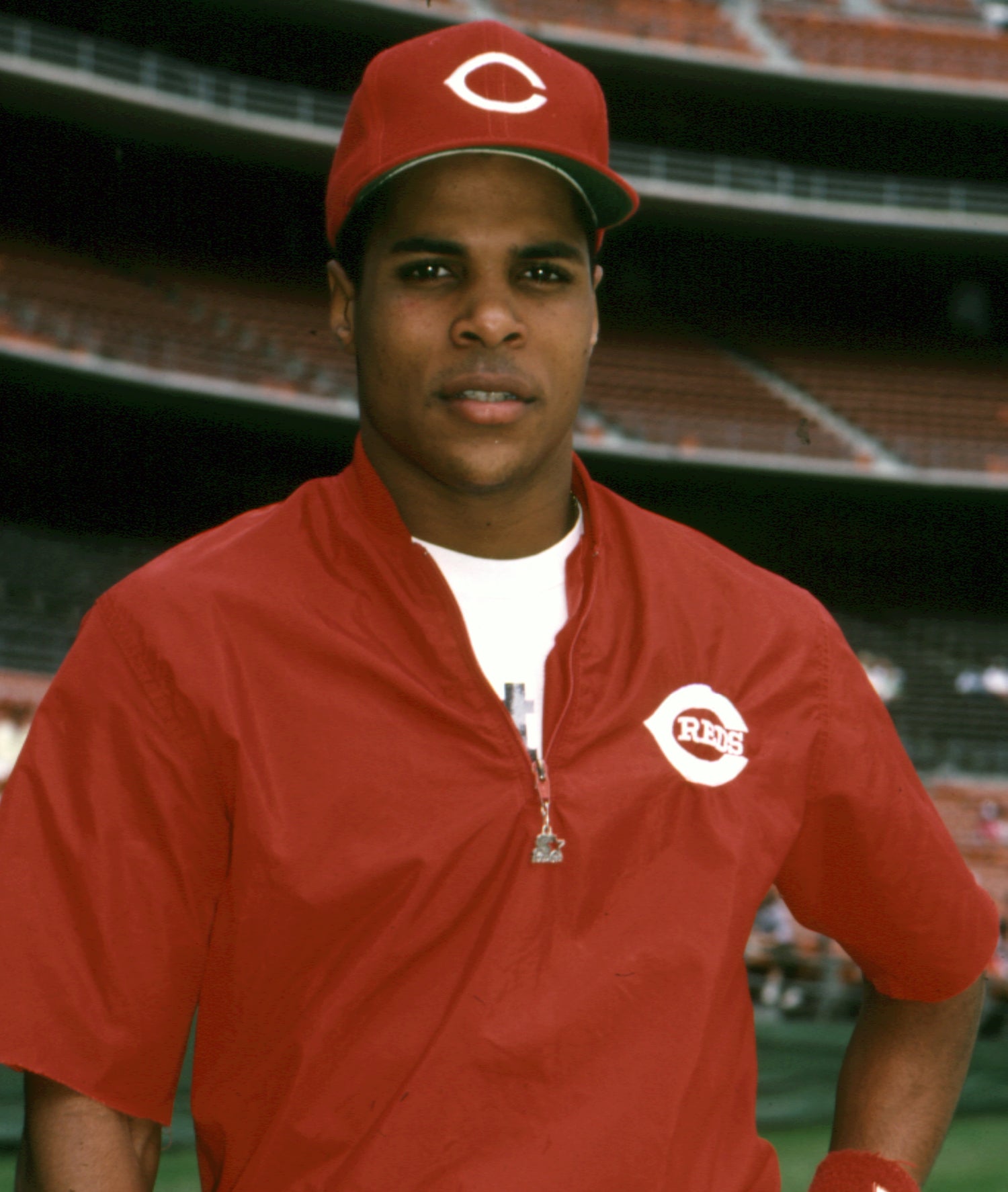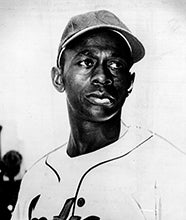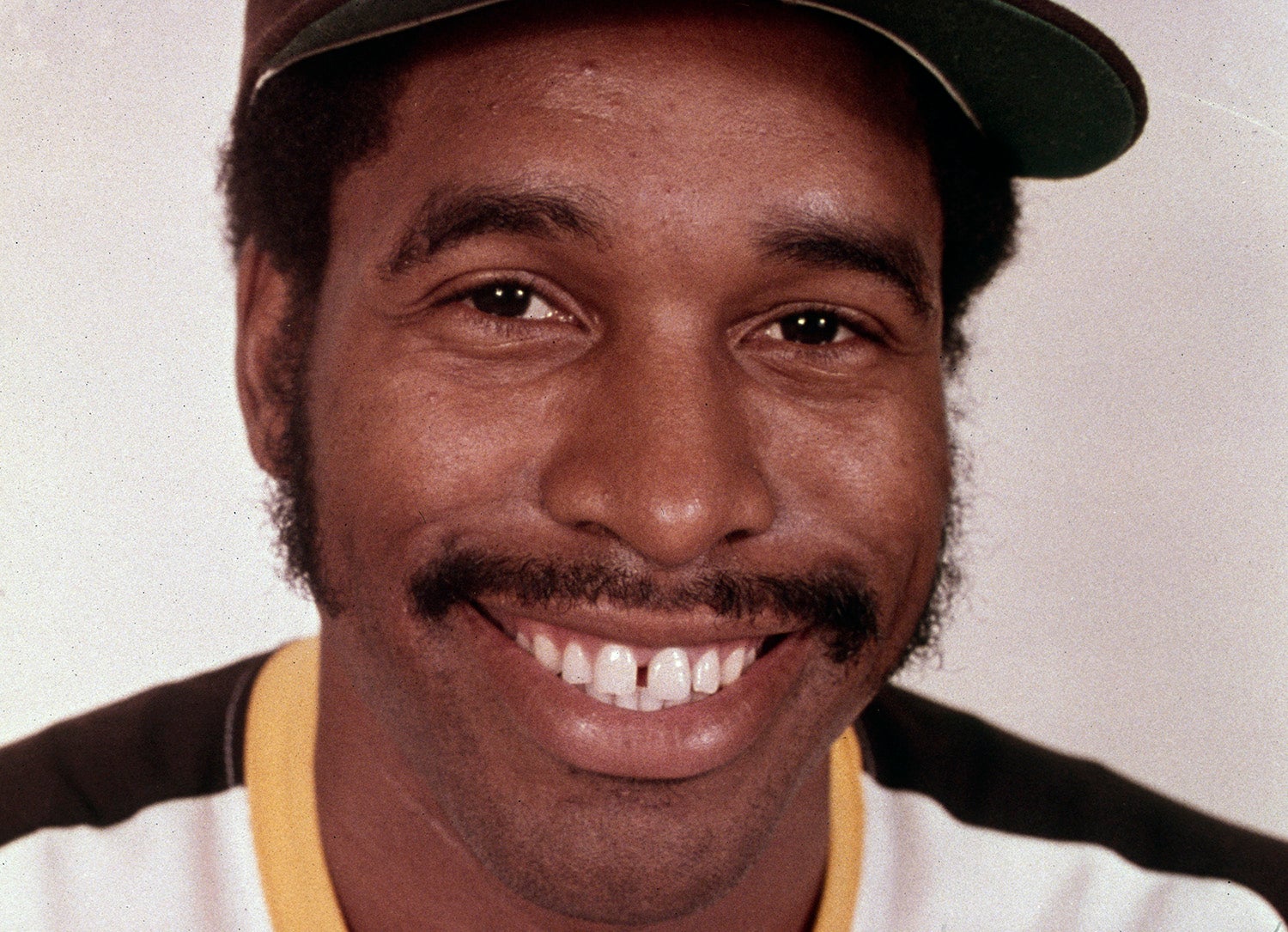- Home
- Our Stories
- Adam Jones reflects on stellar career, Hall of Fame Black Baseball Initiative
Adam Jones reflects on stellar career, Hall of Fame Black Baseball Initiative
Adam Jones, a longtime center fielder with the Baltimore Orioles who has dealt with both high and lows during a terrific baseball career, is using his experiences on the diamond and curiosity off it to improve the future of the game.
The San Diego native, a 14-year big-league veteran, began his career in 2006 with a pair of seasons with the Mariners and ended it with a single campaign with the Diamondbacks in 2019, bookending 11 years with Orioles. Jones was a guest on the National Baseball Hall of Fame and Museum’s Virtual Voices of the Game program on Feb. 7.
“Anytime the Hall of Fame reaches out, you’ve got to be a fool not to not to pick up the phone,” Jones said early in the conversation. “Trust me, it’s a pleasure to be here. I know I’ll never stand up on that stage in that hot summer, but to be linked to the Hall of Fame, have a have some memorabilia there, it’s a pretty cool thing.”
Not only does the Cooperstown institution have a few Jones bobbleheads in its collections, but Jones also donated a cap and shirt he wore while playing for Team USA in the 2017 World Baseball Classic Finals, and shoes he wore while with the Orioles on Jackie Robinson Day on April 15, 2018.
“All I want is one person to vote for me,” he added with a laugh, “if there’s some writer out there that thinks I had a good enough career. If I get one vote I’d be extremely happy. But I know where my place is. That’s a different echelon of player.”
Official Hall of Fame Merchandise
Hall of Fame Members receive 10% off and FREE standard shipping on all Hall of Fame online store purchases.
Jones becomes eligible for consideration by the Baseball Writers’ Association of America for election into the Hall of Fame for the first time in 2025.
A five-time All-Star and four-time Gold Glove Award winner, Jones finished his career with 1,939 hits, 282 career homers, 945 RBI and a .277 batting average. He captured the 2013 American League Silver Slugger Award as an outfielder with career highs in homers (33) and RBI (108). A stalwart defender, he led AL center fielders in putouts three times, assists three times and double plays twice.
Having spent the majority of his playing career manning center field at Oriole Park at Camden Yards, Jones expressed an unsurprising affection for his Baltimore workplace.
“The ballpark was fantastic. I own a lot of records there, so that’s pretty cool. But it was just a great ballpark,” Jones said. “My 20-minute drive everyday was great because it just opens up to the big warehouse once you get there. And then, obviously, just running out to center field and just looking around.
“There are so many really good players that have stood in this position in this center field. I just relished the opportunity that I had. This is my job. This is my office. And there’s a big warehouse to my left, and all those people in that warehouse, that’s their office building, but my office was right there in center field. It was just a beautiful place to call home for a lot of years. One of the best things about it is about the third or fourth inning you get that Boog’s BBQ breeze that comes over to center field.”
Jones also discussed his role as an advisor to the Hall of Fame’s Black Baseball Initiative. The Hall of Fame will honor this history and celebrate its impact with an initiative to tell the story of Black baseball, culminating in the opening of a new permanent exhibit at the Museum in April 2024. The Advisory Board includes Hall of Famers, former players, historians, media members and others from the baseball family, including Ken Griffey Jr., Barry Larkin, Dave Winfield, Doug Glanville, Jones and Dave Stewart.
“I love the game. There’s just one thing that I know well, I believe, and it’s something I’m really passionate about. So, when I get to talk about baseball, the history of it, it fires you up,” Jones said. “I’ve always been a history buff, especially with the Black history of baseball because everybody wants to know where they come from. I was fortunate enough to have a good hero in Tony Gwynn, somebody that looked like me. And then I was able to dig deeper as I got older and had more resources with Major League Baseball.
“It’s just doing my due diligence to understand how this great game has come to be. Black, white, Hispanic, Asian, we’ve all had a very big part in the game. So, to be a part of the Black Baseball Initiative is very humbling.”
Asked what he hoped would result from the Black Baseball Initiative, Jones said it would be the “continuousness” of it.
“Let’s not have this a one-year event. Bam! That’s it. I hope it’s something continuous to where you keep honoring these guys,” he said. “I had Ted Williams’ name, obviously, being from San Diego, thrown down my throat every single day, and rightfully so. He’s one of the greatest hitters of all time. That’s how I think Satchel Paige should be thrown down people’s throats, Josh Gibson, Cool Papa Bell, these guys should be thrown down people’s throats the same way. I would just like to see something that is a continuous educational project because the more and more you dig, the more and more unique and cool things start to pop up.”
As much as the game has progressed regarding race over the years, highlighted by Jackie Robinson’s debut with the Brooklyn Dodgers in 1947, Black players are still dealing with challenges. On May 1, 2017, Jones made the national news when he has the victim of racial taunts and having a bag of peanuts thrown at him at Fenway Park.
“First, I’ve got to say that Boston fans are absolutely awesome. I played over 100 games there. They are amazing fans, and they are knowledgeable. But there’s always going to be incidents where you got stupidity that creeps in,” Jones said. “There’s been multiple incidents in Boston and other cities. It’s not just singling out Boston. This is just my incident. People just want to get a rise out of you. And the second they get a rise out of you they won. Sometimes you just have to take it on the chin.
“But what got everybody really mad was that somebody threw a bag of peanuts and it missed me and hit (a policeman). The cop got really mad. And that’s what I think sparked everything because people asked me, ‘What was going on with the bag of peanuts with you and the cop and what happened in that situation?’ And then I divulge the information about what’s going on the outfield. But I’m not going to say the whole Boston fanbase is this. I just hope that incidents like this just continue to decrease. It teaches us that we’re all subject to everything no matter what status or stature you believe that you’re at.”
According to Jones, the aftermath of his Fenway Park incident was positive.
“Red Sox President Sam Kennedy called me that night and we met the next day – me, him, along with Red Sox owner John Henry and our manager, Buck Showalter. They were just like, ‘Hey, man, sorry, this happened. We will make sure that things like this don’t happen or try and prevent them as best we can,’” Jones recalled. “There’s nothing anybody can really do. But to have the owner come down there … that goes a long, long way.”
Jones has had the opportunity to help the next generation, via player agent Lonnie Murray, by mentoring young Black ballplayers.
“First, I try to just basically tell them the truth. It’s a cutthroat business, a dog-eat-dog world, with professional sports, as in most businesses. I don’t sugarcoat it for them. But I also try to give them advice on how to battle everything that’s going on,” Jones said. “I just try and really just get in their heads about how hard do you really want to work? How hard do you really want this? Do you want it for the limelight, the glitz and the glamour? Do you want the back of a baseball card to be real long opposed to two little lines? So, what do they really want out of it and how they really want to go get it is kind of how I try to talk to these guys.”
As a student of history, Jones has appreciated his own interactions with the Black ballplayers that came before him.
“I got to spend some time with Don Newcombe. Are you kidding me? To hear stories from Jackie Robinson’s roommate, I just sat there listening. You rarely get those kinds of opportunities, so you have to relish them. I’ve had the opportunity to spend time with Dave Winfield. Are you kidding me?” Jones said. “Obviously I’m done playing now, so I asked questions about retirement. You can’t just sit up in a house; you’ve got to do something. And these guys have so much knowledge, so you’d be a fool not to ask these guys questions.
“When you’ve got these guys in a room and you don’t ask them questions, you’re a fool. A first-ballot Hall of Fame fool.”
Bill Francis is the senior research and writing specialist at the National Baseball Hall of Fame and Museum
Related Stories
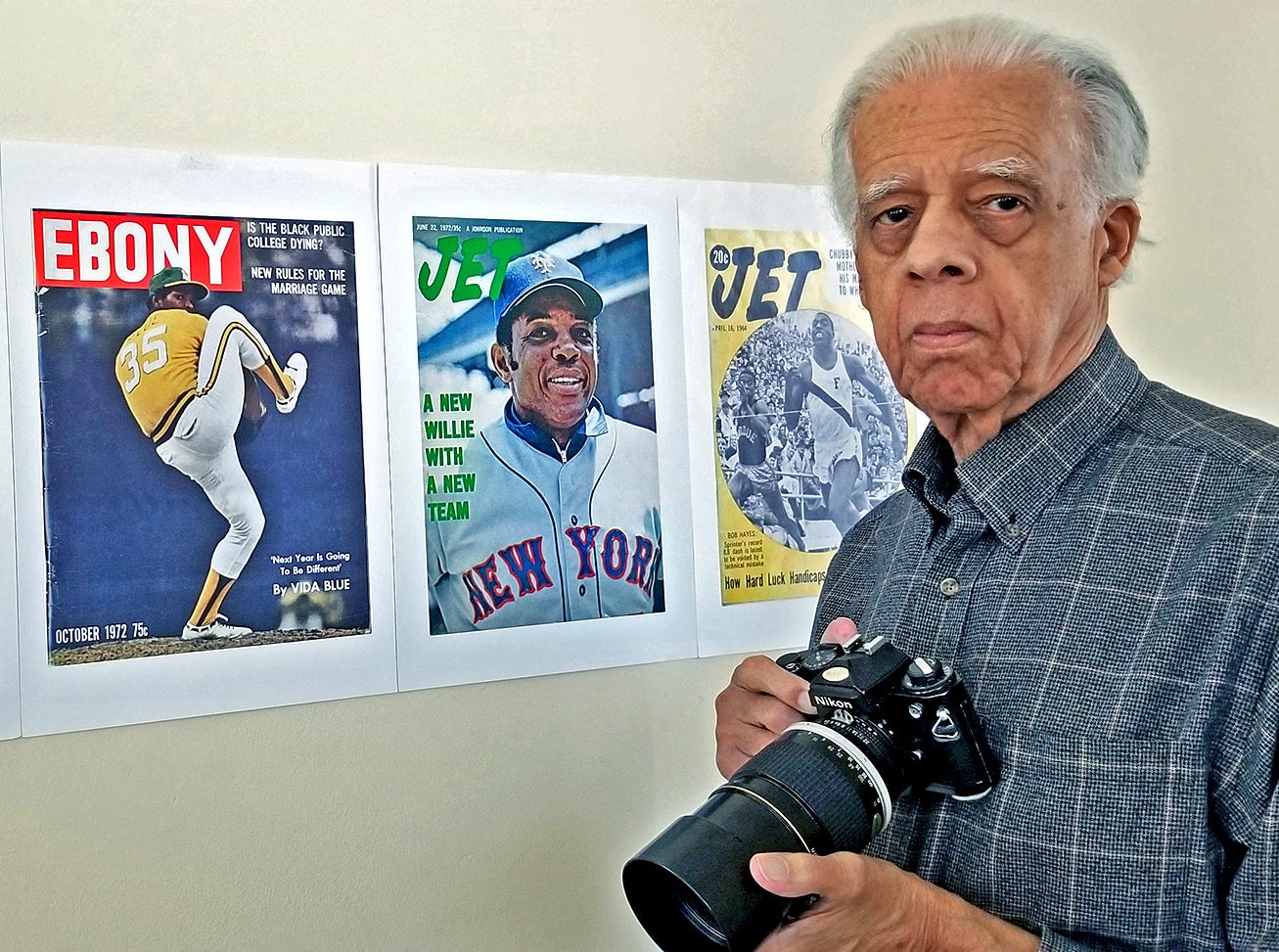
Sparks documented history, blazed trails through a camera lens
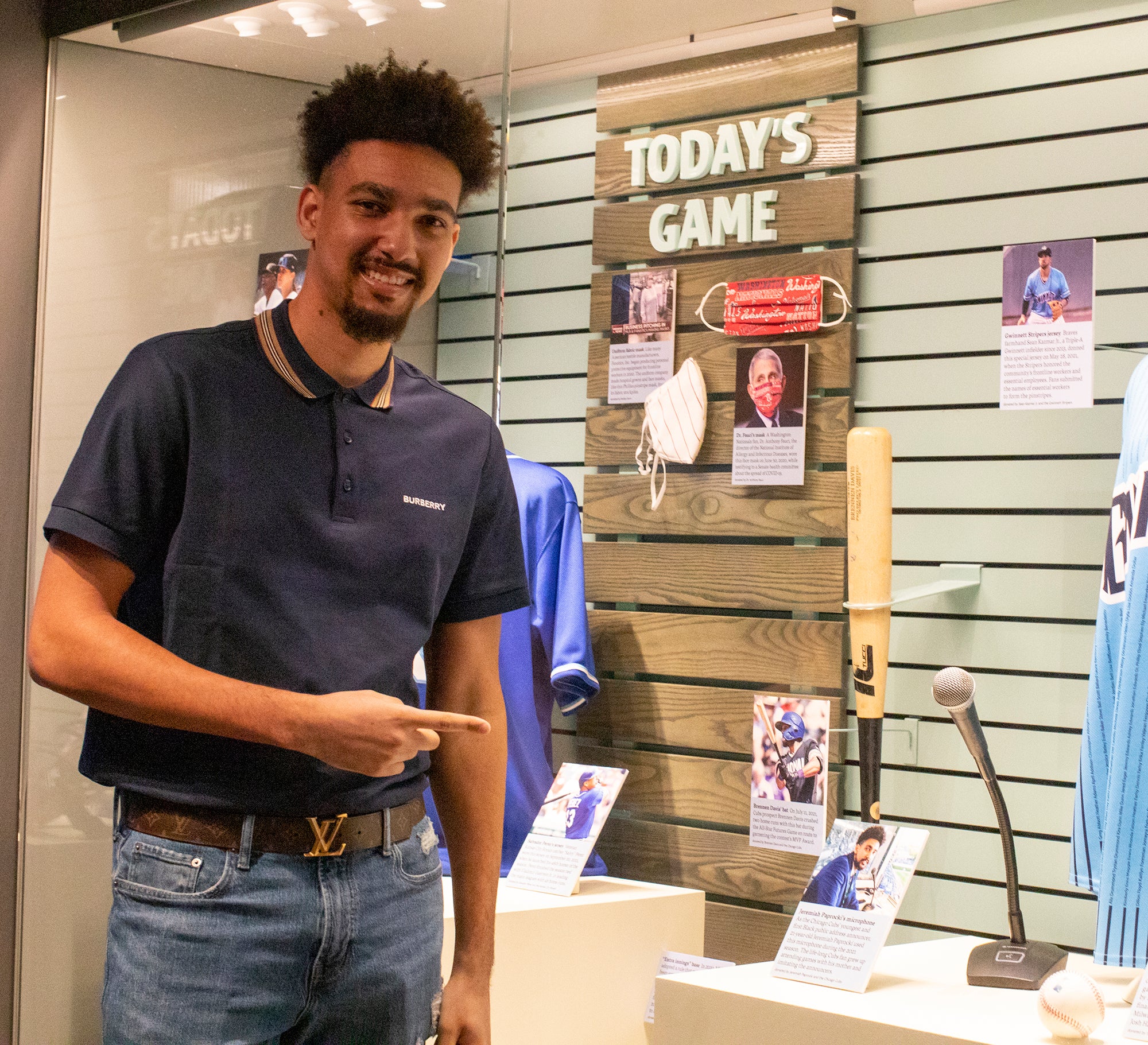
Paprocki makes history in Chicago, Cooperstown

Salas images at home in Museum’s collection

Sparks documented history, blazed trails through a camera lens

Paprocki makes history in Chicago, Cooperstown




